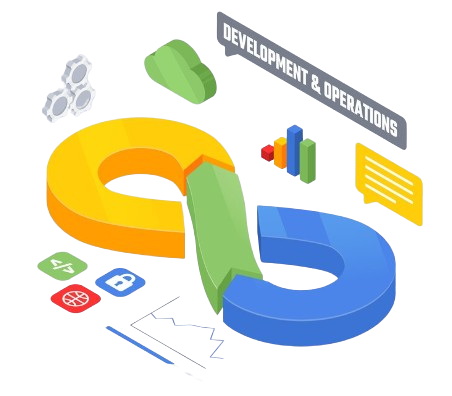As we delve deeper into the world of DevOps, the impact of containerization, particularly through tools like Docker, is undeniable. It offers a path to more efficient, scalable, and reliable software development and deployment. For businesses looking to stay ahead in the rapidly evolving tech landscape, embracing containerization is not just an option; it’s a necessity.
In the dynamic sphere of software development, containerization is redefining the DevOps landscape. With the rise of Docker, it isn’t just a buzzword; it’s reshaping how we approach development and operations. Let’s dive into how containerization trends are influencing DevOps, spotlighting Docker’s pivotal role.
The Rise of Containerization in DevOps
It has revolutionized the way developers package and deploy applications. It involves encapsulating an application in a container with its own operating environment. This innovation has become a cornerstone in modern DevOps strategies, offering unparalleled efficiency and agility.
- What Makes Containerization Stand Out?
The beauty of this trend lies in its ability to create consistent and isolated environments for applications, irrespective of where they are deployed. This means that the common issues of “it worked on my machine” are significantly reduced, if not eliminated.
- Docker: The Heart of Containerization
Docker, a leading tool in this trend, has become almost synonymous with container technology. It provides an easy and efficient way to package applications into containers—consolidating the application and its dependencies in a single, portable unit.
Enhancing DevOps Efficiency
The integration of containerization into DevOps practices has led to remarkable improvements in software development and deployment.
- Streamlined Workflows
Containerization, through tools like Docker, streamlines development workflows. This results in more efficient and quicker deployment cycles, a fundamental aspect of the DevOps philosophy.
- Environment Consistency
One of the significant advantages is the consistency it offers across various environments. This consistency ensures that software behaves the same way, whether it’s being developed, tested, or deployed in production.

- Scalability and Portability
It simplifies scaling and deployment processes. Containers can easily multiply and distribute across different servers or clouds, enhancing the flexibility of application deployment and management.
Trends and Future Directions
As containerization continues to evolve, several trends are shaping its future within DevOps.
- Kubernetes and Container Orchestration
Kubernetes has emerged as a powerful tool for container orchestration. It automates the deployment, scaling, and management of containerized applications, further enhancing the capabilities provided by Docker.
- Microservices and Containerization
The move towards microservices architecture fits perfectly with this trend. By breaking down applications into smaller, manageable pieces, It makes deploying, scaling, and maintaining each component easier.
- Containerization and Cloud-Native Approaches
It is an integral part of cloud-native development, offering the agility and flexibility required to build and run applications in modern cloud environments.
Conclusion:
As we delve deeper into the world of DevOps, the impact of containerization, particularly through tools like Docker, is undeniable. It offers a path to more efficient, scalable, and reliable software development and deployment. For businesses looking to stay ahead in the rapidly evolving tech landscape, embracing containerization is not just an option; it’s a necessity. Tanbits, offering robust DevOps services, is well-equipped to guide your journey in this containerized world, ensuring you harness the full potential of these evolving trends.
BACK










